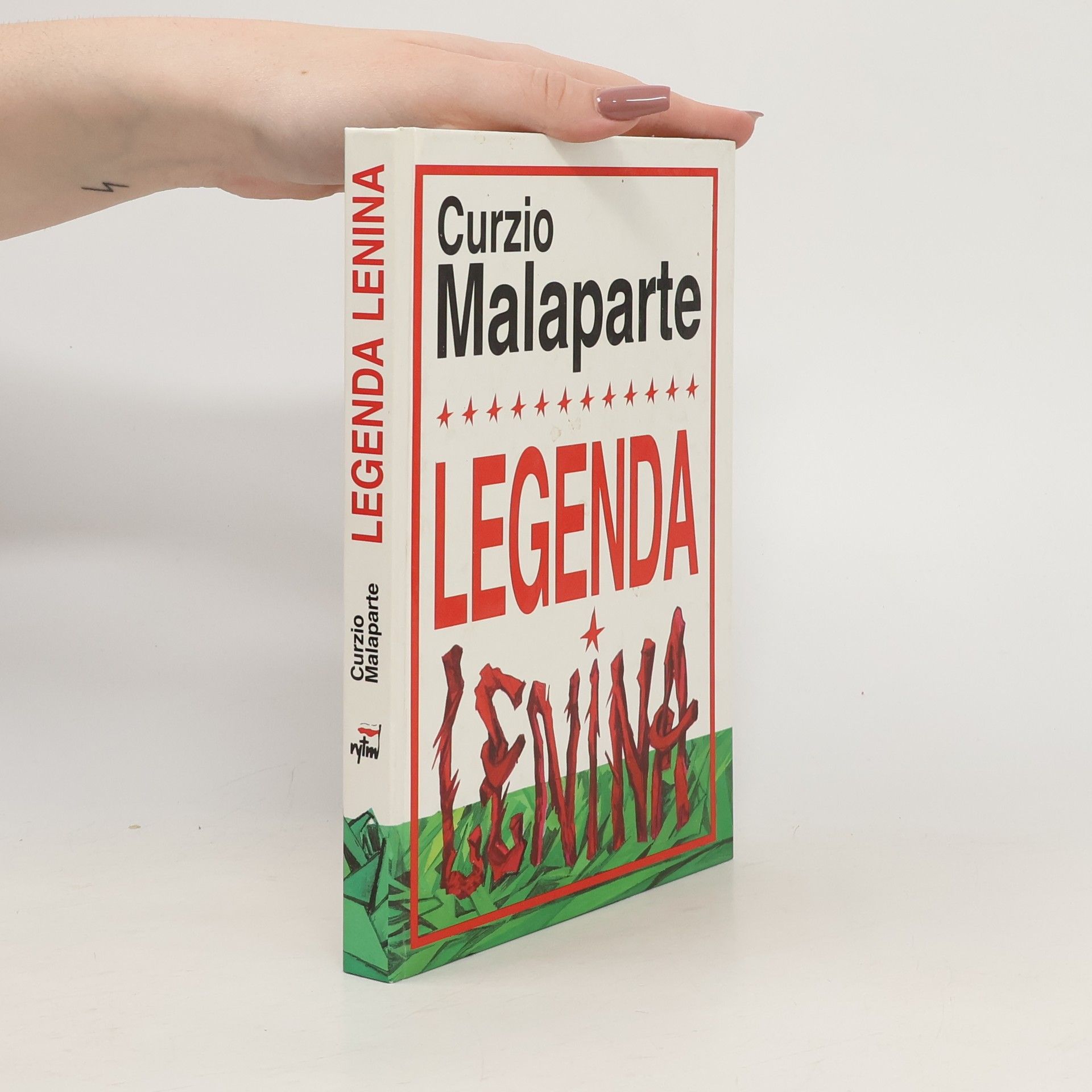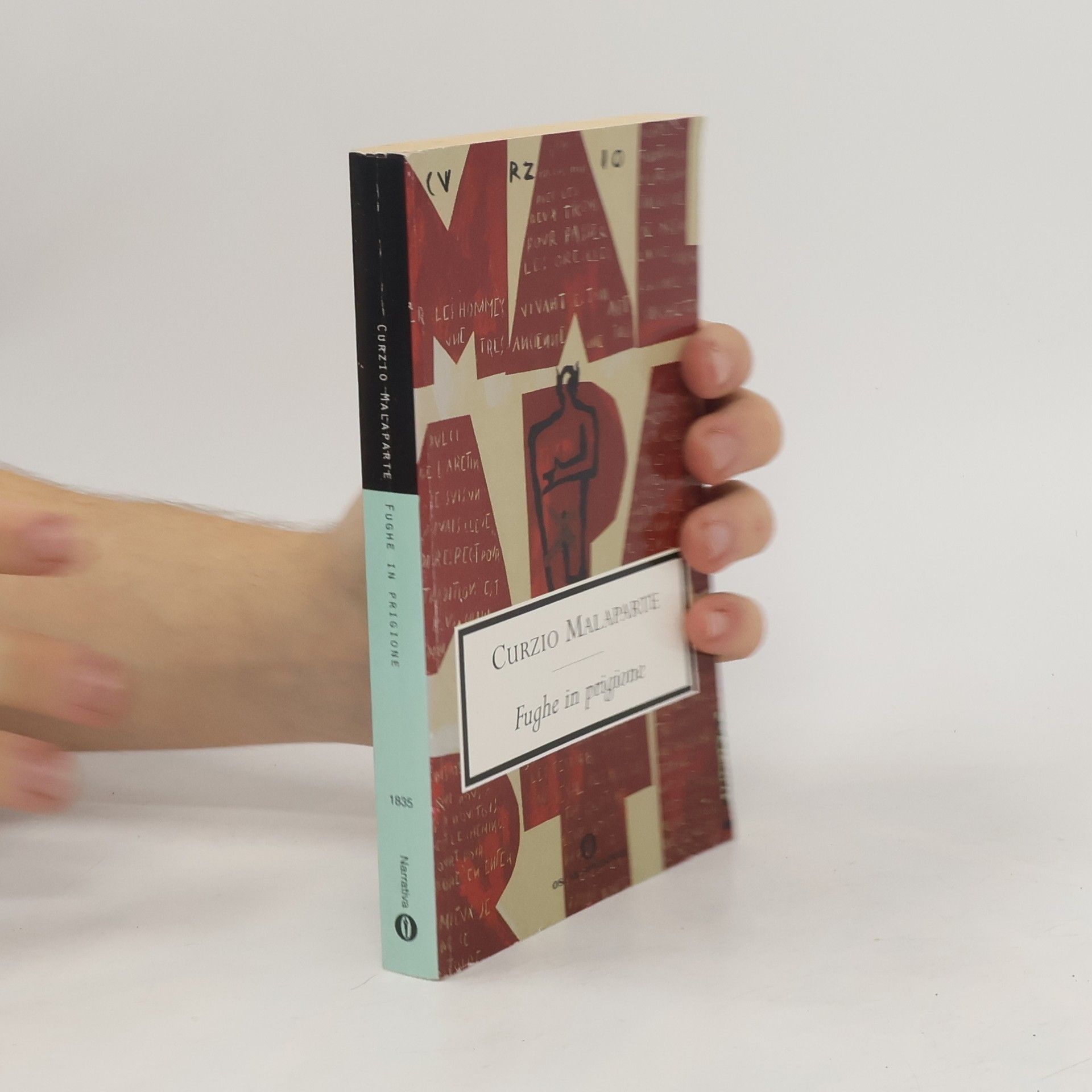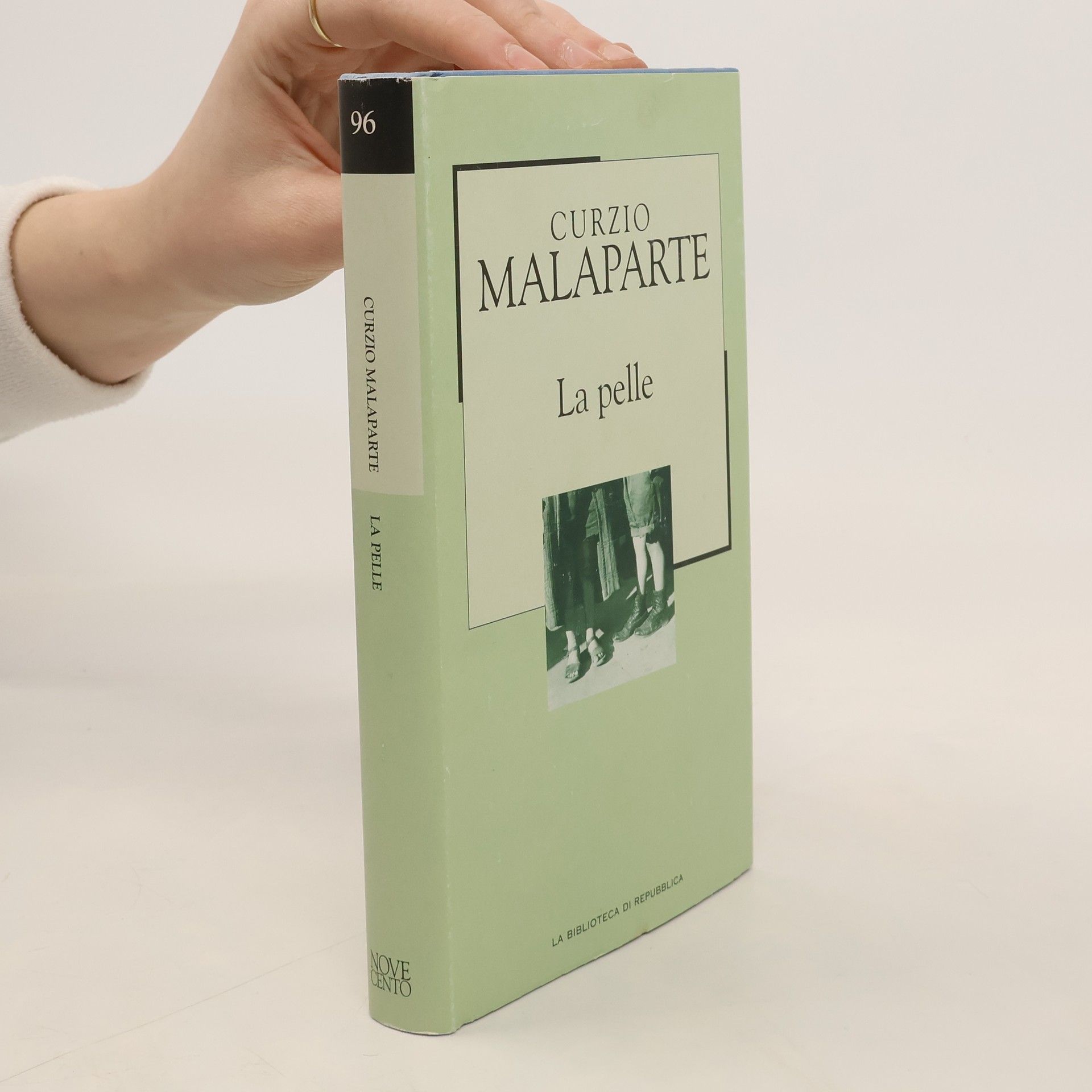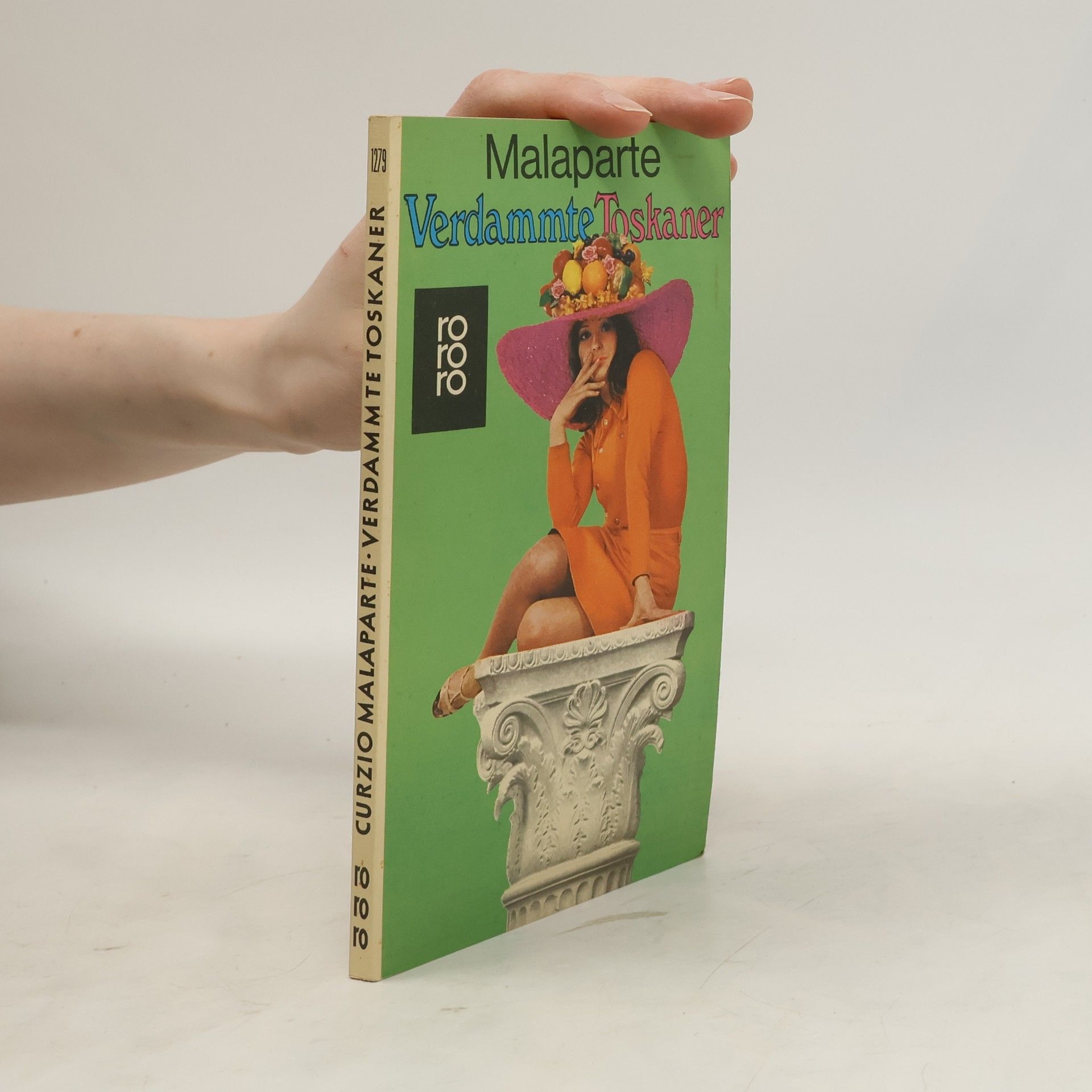Curzio Malaparte Knihy
Tento italský autor, proslulý svými ostrými postřehy a provokativním psaním, prozkoumává temné stránky lidské povahy a složitost meziválečné Evropy. Jeho díla, často zakořeněná v jeho vlastních rozsáhlých zkušenostech jako novinář a diplomat, vynikají nekompromisním pohledem na politiku a společnost. Prostřednictvím svého jedinečného stylu zachycuje napětí a ironii doby a nabízí čtenářům pronikavé a znepokojivé reflexe. Jeho tvorba zůstává silnou výpovědí o komplexnosti světa a lidských motivací.

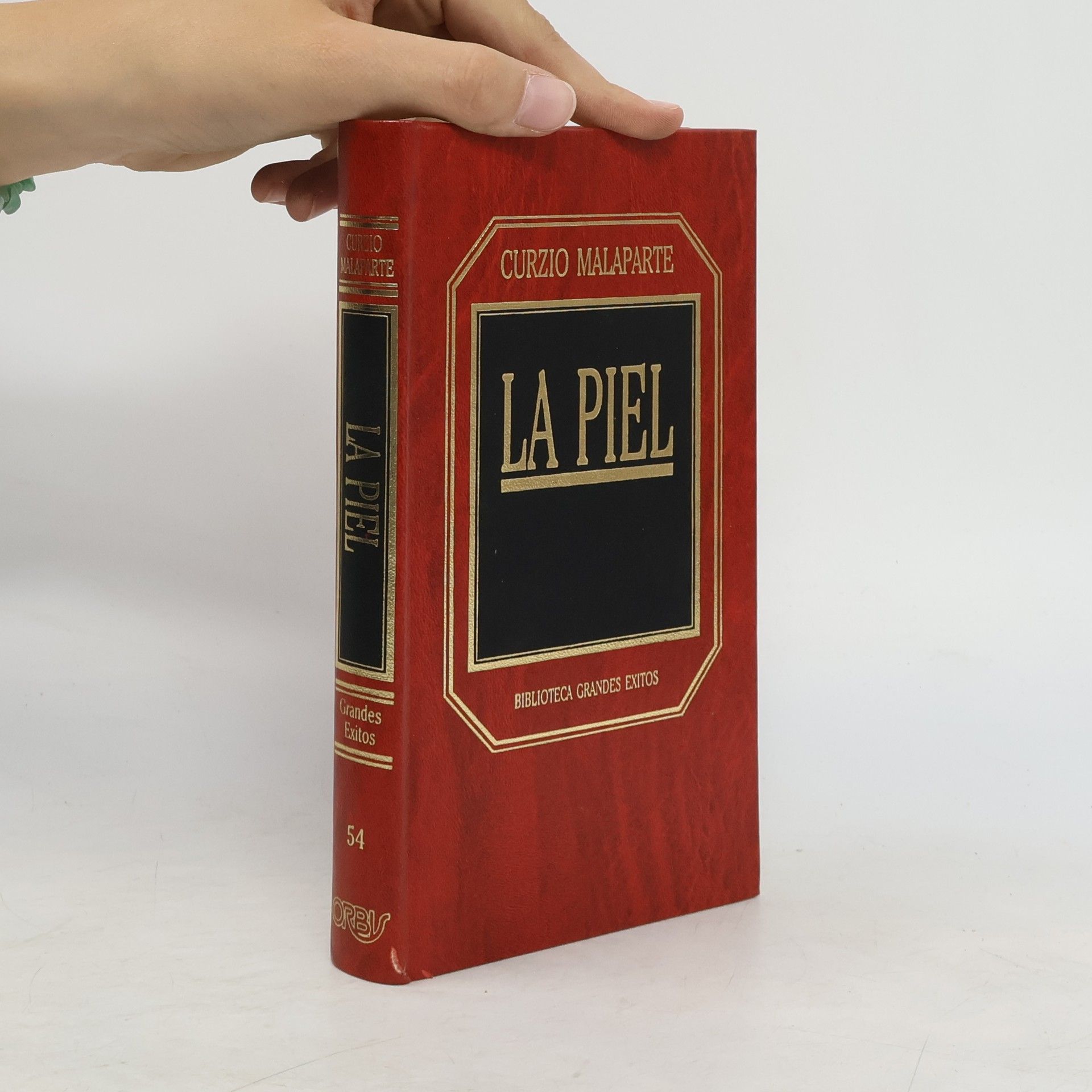


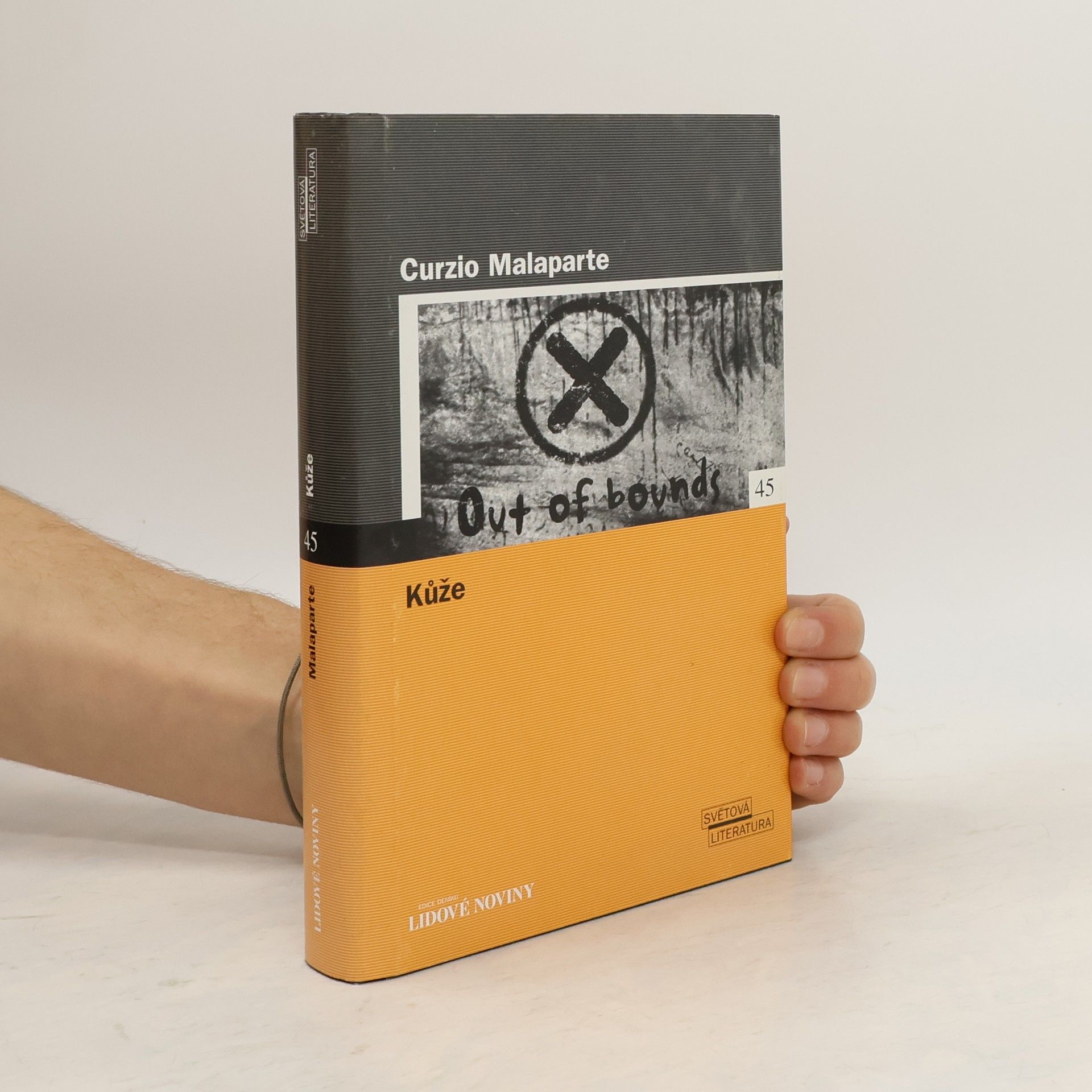
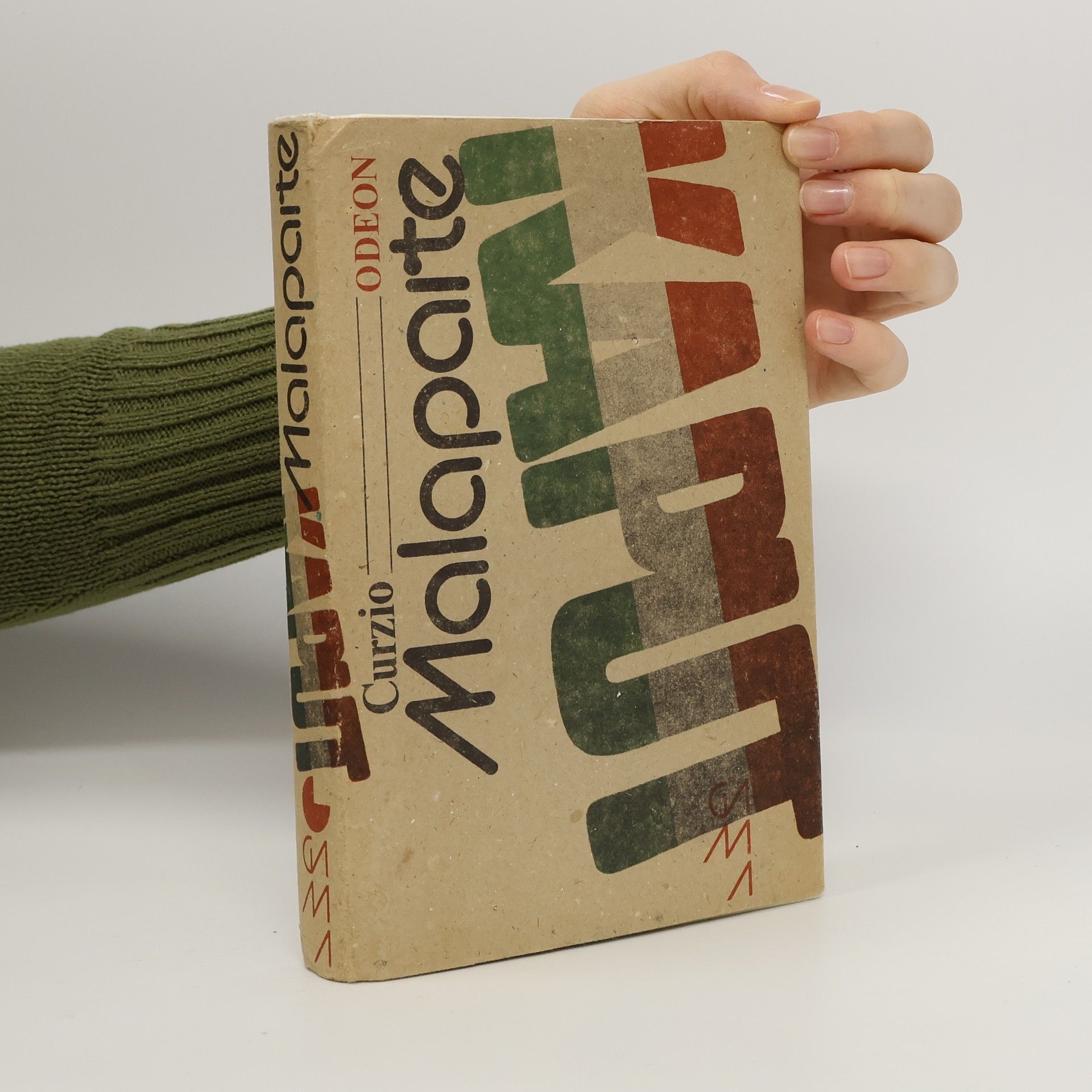
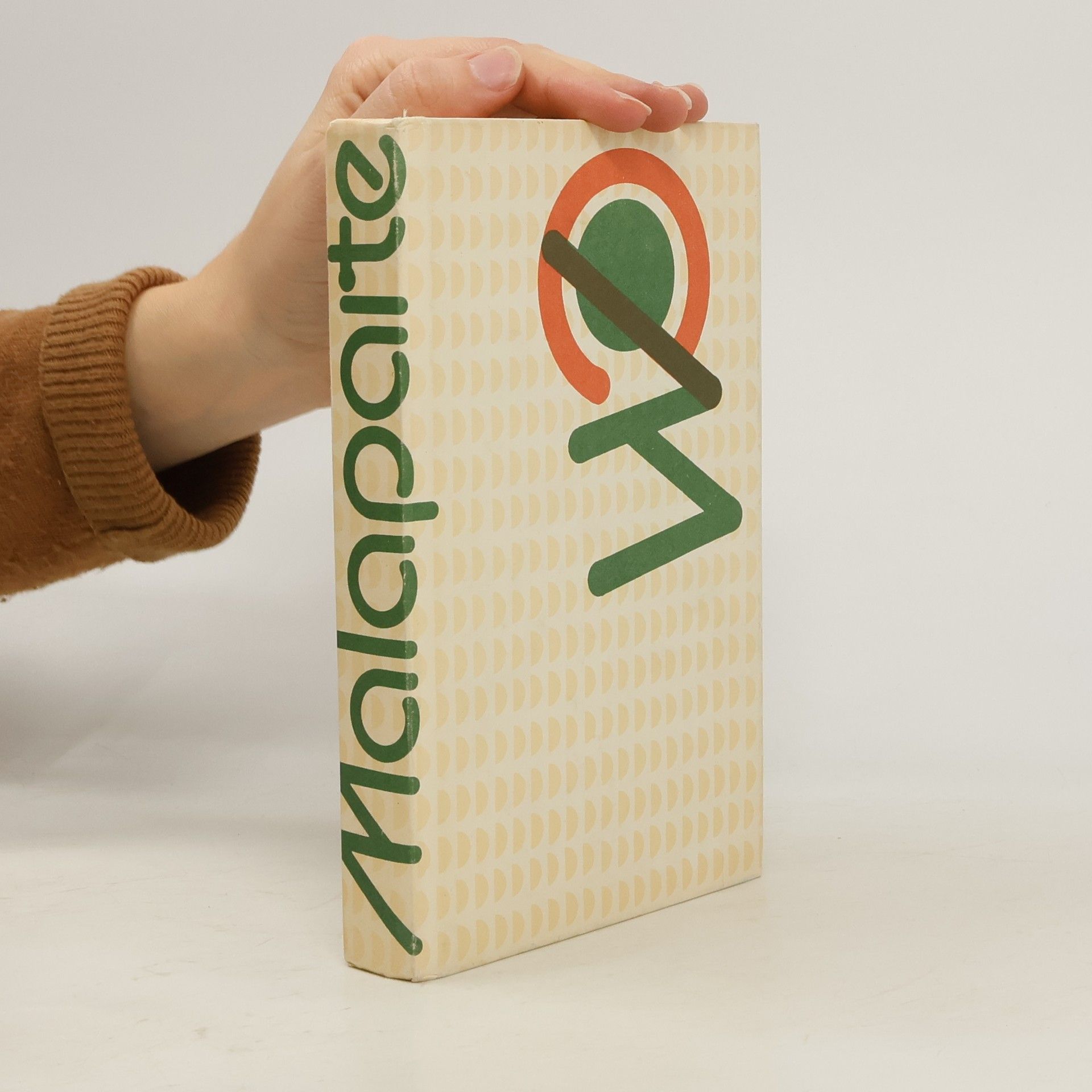
Proslulá kniha reportáží známého italského novináře je věnována tragédiím 2. světové války na téměř celém území Evropy. Kniha je rozdělena do několika částí (Koně, Krysy, Psi, Sobi, Mouchy, Ptáci), jejichž účinek se neustále stupňuje. Jako celek je kniha nevšedním dokumentemo průběhu událostí zejména na fašistické frontě a vizionářským svědectvím o porážce nacismu. Jednotlivé příběhy se pohybují mezi fakty a fikcí, mezi realitou a fantazií a tvoří vrstevnaté podobenství o válce a zároveň je jednoznačným varováním pro budoucnost. V cyklu šesti obrazů je lidský úděl zachycen v okamžicích nejhlubšího ponížení, ale také i živé naděje.
Slavný protiválečný román Kůže je skvělým dokladem autorova stylu: nezaměnitelné kombinace reálného, dokumentaristicky přesného pozorování s tvůrčí nadsázkou, mnohdy záměrně vykreslující obrazy, jež hraničí s bizarností či absurditou. Jde o postup, který nejpřiléhavěji vyjadřuje Malaparteho téma – rok 1943, obsazení Itálie spojeneckými vojsky, doba, v níž staré hodnoty vzaly definitivně za své a nové byly teprve klopotně hledány, období mravního vakua... Neapol byla prvním osvobozeným evropským městem. Ovšem v čase, kdy zavládlo všeobecné nadšení nad koncem kruté války, si Malaparte položil otázku po ceně znovunabyté svobody a odpověď, k níž ve své knize dospěl, není jednoznačná. Střet vítězů a poražených (či osvoboditelů a osvobozených) je mnohem více střetem kultur a civilizací než zbraní. Proto má poválečná Itálie v autorově podání místy charakter až apokalyptický. A v tomto smyslu je třeba též chápat i závěrečnou, zdánlivě paradoxní větu románu: „Vyhrát válku je hanba.“ V roce 1981 natočila režisérka Liliana Cavaniová podle Kůže film s Marcellem Mastroiannim v hlavní roli.... celý text
The Kremlin Ball
- 223 stránek
- 8 hodin čtení
"Perhaps only the impeccably perverse imagination of Curzio Malaparte could have conceived of The Kremlin Ball, which might be described as Proust in the corridors of Soviet power. The book is set at the end of the 1920s, when the Great Terror may have been nothing more than a twinkle in Stalin's eye, but when the revolution was accompanied by a growing sense of doom. In Malaparte's vision it is from his nightly opera box, rather than the Kremlin, that Stalin surveys Soviet high society, its scandals and amours and intrigues among beauties and bureaucrats, including the legendary ballerina Marina Semyonova and Olga Kameneva, a sister of the exiled Trotsky, who though a powerful politician is so consumed by dread that everywhere she goes she gives off the smell of rotting meat. This extraordinary court chronicle of Communist life (for which Malaparte also contemplated the title God Is a Killer) was published posthumously and appears now in English for the first time"--
Diary of a Foreigner in Paris
- 360 stránek
- 13 hodin čtení
Every "diary" serves as a portrait, chronicle, or history, capturing moments that reflect a broader narrative. Unlike random notes, a true diary tells the story of a life, marked by beginnings, middles, and ends. Life itself unfolds like a tale, with a structured progression rather than mere chance. The subject of this diary revolves around my return to Paris after fourteen years, exploring a transformed France and its people. It captures a specific moment in the history of the French nation that aligns with a pivotal time in my own life. I do not claim to innovate within the diary genre; rather, I propose that a diary functions as a narrative, akin to a play. It embodies the essence of storytelling, where every element leads toward a conclusion, adhering to classical unity, while focusing on the character of "I." This diary represents a theatrical work brought to the page, echoing Kafka's concept of the "present moment" as it unfolds. Ultimately, my diary seeks to bridge the gap between narrative and theater, presenting a unique perspective on personal and national stories.
Biblioteca Grandes Exitos - 54: La Piel
- 284 stránek
- 10 hodin čtení
Legenda Lenina
- 232 stránek
- 9 hodin čtení
Malaparte, nel settembre del 1931, confida all'amico Halévy il suo obiettivo di presentare un Lenin diverso da come è percepito in Europa. La sua ambizione è mostrare Lenin attraverso gli occhi dei «Russi intelligenti», analizzando il fenomeno secondo la sua logica, come già fatto in precedenza. Il suo nuovo libro, pubblicato a Parigi nel 1932, avrà un impatto sorprendente. Qui, Lenin non è il Gengis Khan proletario, ma piuttosto un piccolo borghese, freddo e riflessivo, sedentario e burocratico. Con un'immaginazione meticolosa e una «crudeltà platonica», è ostile al romanticismo terrorista e incapace di agire al di fuori della teoria. Si sente più a suo agio nelle discussioni politiche e nelle faide personali che nel confronto con la realtà. Lenin appare come un europeo medio, un uomo violento e timido, un «funzionario puntuale e zelante del disordine», un fanatico e opportunista, per cui la rivoluzione è una questione interna di partito, frutto di calcoli ossessivi. Quando, una volta al potere, non può più osservare gli eventi da lontano, si trova costretto a confrontarsi con la realtà, decidendo di inventarla e imporla a se stesso, ai suoi collaboratori, al popolo russo, alla rivoluzione proletaria e al futuro dell'Europa.
Fughe in prigione
- 289 stránek
- 11 hodin čtení
Pubblicate in varie edizioni, nel 1936, nel 1943 e, infine, nel 1954 (quella qui riproposta), queste "Fughe in prigione" sono state scritte durante i periodi trascorsi da Malaparte nel carcere romano di Regina Coeli e al confino di Lipari, dove venne inviato per i suoi atteggiamenti liberi, provocatori, non allineati al regime fascista, che anzi attaccò violentemente. A queste pagine del tempo di prigionia Malaparte volle aggiungere alcuni testi scritti in Francia e in Inghilterra poco prima dell'arresto. Si tratta di memorie, riflessioni di carattere culturale, studi letterari nei quali l'autore sembra cercare un rifugio e una via di fuga per lo spirito.
La Biblioteca di Repubblica - 96: La pelle
- 315 stránek
- 12 hodin čtení
Un viaggio allucinato e infernale nella Napoli appena liberata dagli americani, un susseguirsi di storie al limite della visionarietà nei meandri di una città distrutta, sfinita, quasi in putrefazione, una grottesca rappresentazione del dolore, della bestialità, della miseria e della turpitudine: il romanzo-scandalo di Curzio Malaparte pare voler colpire con tutti i mezzi a disposizione le pigre coscienze dei lettori, proponendo un vasto e terrorizzante campionario di orrori e di abiezioni. Dal pranzo del generale Cork, in cui viene imbandita una bambina, alla vendita della ragazzina ancora vergine, al frenetico sabba omosessuale della “figliata”, si delinea a poco a poco un universo oscuro e perverso, che ha smarrito il senso della distinzione fra bene e male, e che tutti ingloba, sia vincitori che vinti, in un vischioso e insensato Nulla, ove l’unica cosa che resta da fare è «lottare e soffrire per la propria pelle».
